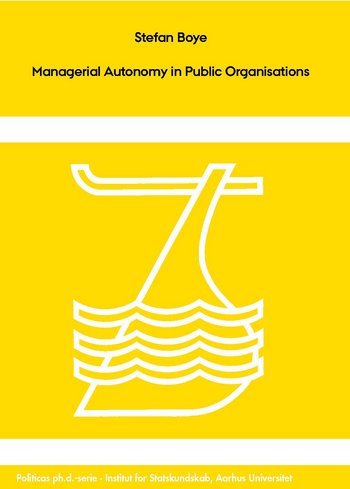Stefan Boye
Managerial Autonomy in Public Organisations

Managerial autonomy is a key concept in public administration theory and practice. However, it is not clear enough what the concept precisely entails when it is applied in the academic literature and in policy. This dissertation aims to improve our understanding of managerial autonomy in public organisations and the antecedents and consequences of managerial autonomy. Through a systematic review of the literature, a conceptualisation is advanced. The conceptualisation is used to analyse interviews with public managers about their experiences with managerial autonomy. The dissertation shows that managerial autonomy in public organisations can be approached as de jure/de facto, as autonomy to/autonomy from, and that it is continuously bargained between the public managers and their stakeholders. The dissertation draws on this conceptualisation, regulative theory, theory of work organisation, and performance management to test antecedents and consequences of managerial autonomy. First, the analyses show that regulative stakeholders and regulative processes have influence on the level of experienced managerial autonomy. Second, granting employees’ autonomy in work organisations vis-à-vis their managers is found to relate positively with organisational performance. Third, managerial autonomy coupled with high use of performance goals is positively associated with organisational performance. The dissertation contributes with clarification of a key concept in public management theory, and it offers a common language for academics and practitioners to communicate about public management. Finally, the dissertation contributes with new empirical insights into the literature of antecedents and consequences of managerial autonomy that have implications for future public policy.
![]() Ophavsretten tilhører Politica. Materialet må ikke bruges eller distribueres i kommercielt øjemed.
Ophavsretten tilhører Politica. Materialet må ikke bruges eller distribueres i kommercielt øjemed.